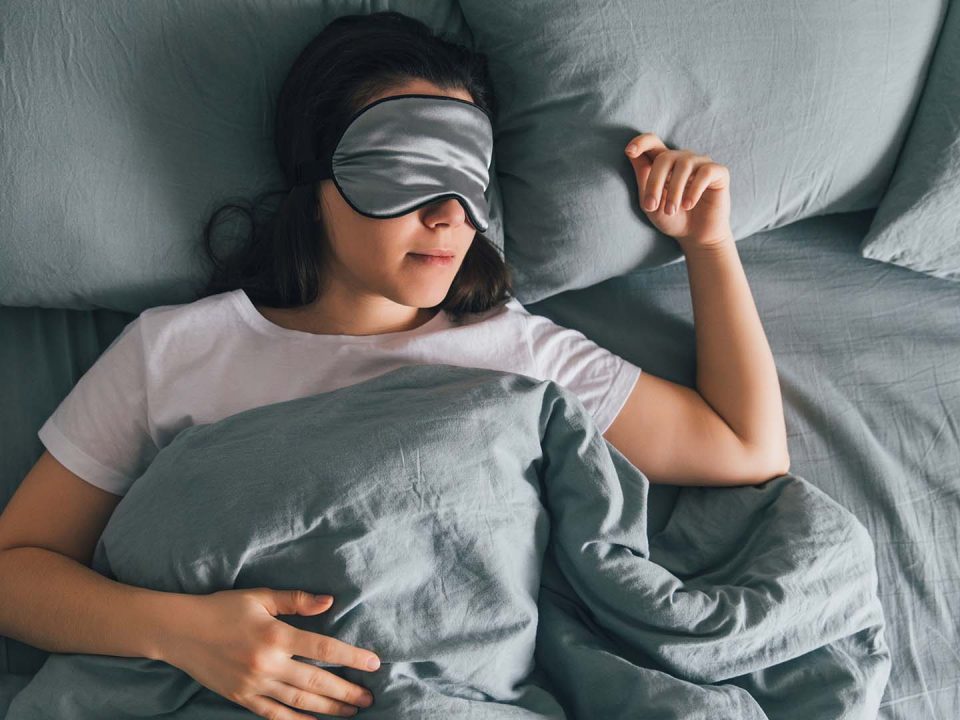Sleep hygiene is your bedtime routine and sleep environment. It's crucial for good health and well-being. Poor sleep hygiene can lead to serious problems. Let's look at the facts.
A study in Tabuk, Saudi Arabia, found shocking results. People with bad sleep habits had more sleep issues. In fact, 76.5% of them struggled to sleep well. Compare that to only 56.1% of those with good habits. That's a big difference!
But it's not just in Saudi Arabia. The problem is widespread. In the U.S., more than one-third of adults don't get enough sleep. The National Sleep Foundation's 2020 poll showed this clearly. Many feel tired during the day at least half the week.
Lack of sleep affects everything. It impacts mood, thinking, and productivity. It even hurts relationships and exercise habits. The CDC reports that adults need at least seven hours of sleep. But in 2022, 30% to 46% of adults in different states weren't getting enough.
Poor sleep hygiene also causes daytime sleepiness. The Tabuk study found 22.5% of people with bad habits felt very sleepy during the day. Only 11.7% with good habits felt the same. This sleepiness can really hurt your daily life and work.
Mental health suffers too. The same study showed 75.8% of people with poor sleep hygiene had depression. For those with good habits, it was 59.6%. That's a clear link between sleep and mental health.
The economic impact is huge. While exact figures aren't given, other studies show billions of dollars lost each year. This comes from lower productivity and more sick days.
Good sleep hygiene is vital. It affects your health, work, and overall life quality. By improving your sleep habits, you can boost your well-being in many ways.
Data Sources:
- NCBI - Sleep Hygiene Practices and Its Impact on Mental Health and Sleep Quality
- Sleep Foundation - 100+ Sleep Statistics
- National Sleep Foundation - Sleep by the Numbers
- HelpGuide.org - Sleep Facts and Statistics
Introduction
Sleep hygiene is your ticket to better rest and a healthier life. It's all about the habits and practices that set you up for a good night's sleep. Think of it as your bedtime routine, but supercharged. Good sleep hygiene can make a world of difference in how you feel and function each day.
Why does it matter? Well, poor sleep hygiene can wreak havoc on your health and daily life. A recent study in Tabuk city, Saudi Arabia, found that people with bad sleep habits were more likely to have sleep problems and feel sleepy during the day. This isn't just about feeling groggy – it can affect your mood, work, and relationships too.
Data Source: NCBI - Sleep Hygiene Practices and Its Impact on Mental Health and Sleep Quality
Let's dive into what the research says about sleep hygiene and why it's crucial for your overall well-being. From mental health to workplace productivity, the impacts of sleep hygiene reach far beyond your bedroom. Ready to unlock the secrets of better sleep? Let's get started!
Methodology and Data Sources
Our study draws primarily from a comprehensive research conducted in Tabuk city, Saudi Arabia. This study, published in the National Center for Biotechnology Information (NCBI), focused on sleep hygiene practices and their impact on mental health and sleep quality. The researchers used a cross-sectional design, collecting data from 1,019 participants through an online questionnaire.
To supplement this primary source, we incorporated additional data from the Sleep Foundation and the Centers for Disease Control and Prevention (CDC). These sources provided broader context on sleep patterns and insufficiency rates across the United States.
The Tabuk city study employed validated tools including the Pittsburgh Sleep Quality Index (PSQI) and the Sleep Hygiene Index (SHI). Participants were categorized into good and poor sleep hygiene groups based on their SHI scores. The researchers then analyzed the relationship between sleep hygiene practices and various factors such as sleep quality, daytime sleepiness, and depression.
Statistical analysis was performed using chi-square tests and logistic regression to determine the associations between sleep hygiene and the studied variables. This rigorous methodology allowed for a comprehensive examination of the impacts of sleep hygiene on various aspects of health and well-being.
Data Sources:
- NCBI - Sleep Hygiene Practices and Its Impact on Mental Health and Sleep Quality
- Sleep Foundation - 100+ Sleep Statistics
- CDC - Sleep and Sleep Disorders
Prevalence of Sleep Problems
Sleep problems are alarmingly common among those with poor sleep hygiene. A recent study in Tabuk city, Saudi Arabia, revealed striking differences. 76.5% of individuals with poor sleep hygiene experienced sleep issues. In contrast, only 56.1% of those with good sleep habits faced similar problems.
This 20.4% gap is significant. It shows how crucial good sleep habits are for quality rest. Poor sleep hygiene doesn't just affect a few – it impacts the majority.
Let's visualize this data:
The chart clearly illustrates the stark contrast. Poor sleep habits nearly guarantee sleep problems. Good habits, while not perfect, significantly reduce the risk.
These findings highlight the importance of sleep hygiene. Simple changes in daily routines can make a big difference. By improving sleep habits, many could potentially avoid sleep issues altogether.
Remember, good sleep isn't just about quantity. Quality matters too. And sleep hygiene plays a crucial role in both.
Data Source: NCBI - Sleep Hygiene Practices and Its Impact on Mental Health and Sleep Quality
Insufficient Sleep in Adults
Are you getting enough sleep? You're not alone if you're not. More than one-third of U.S. adults don't get the recommended seven hours of sleep per night. This lack of sleep is taking a toll on our health and well-being.
The National Sleep Foundation's 2020 Sleep in America Poll revealed some eye-opening facts. Over a third of adults reported not getting enough sleep. They felt sleepy during the day at least half the week or more. This insufficient sleep affected their mood, mental sharpness, and productivity. It also impacted their work performance, ability to exercise, and relationships.
But the problem isn't uniform across the country. The CDC reports that in 2022, the percentage of adults not getting enough sleep varied by state. Vermont had the lowest rate at 30%, while Hawaii topped the list at 46%. That's a significant difference!
These numbers are concerning. Lack of sleep isn't just about feeling tired. It can lead to serious health issues and decreased quality of life. It's clear that improving sleep hygiene is crucial for our overall well-being.
Data Sources:
Sleep Foundation - 100+ Sleep Statistics
National Sleep Foundation - Sleep by the Numbers
Daytime Sleepiness and Its Effects
Poor sleep hygiene can lead to excessive daytime sleepiness, impacting your daily life significantly. A study in Tabuk city revealed striking differences between those with good and poor sleep habits. 22.5% of people with poor sleep hygiene reported excessive daytime sleepiness, compared to only 11.7% with good habits. Even more concerning, 5.2% with poor practices experienced severe daytime sleepiness, versus just 1.2% of those with good routines.
These numbers paint a clear picture: poor sleep hygiene doubles your risk of feeling excessively sleepy during the day. This fatigue isn't just an inconvenience. It can seriously affect your productivity, focus, and overall quality of life. Imagine struggling to stay awake during important meetings or feeling too tired to enjoy time with friends and family.
Good sleep hygiene isn't just about nighttime comfort – it's about daytime vitality. By improving your sleep habits, you're investing in your energy levels, mental sharpness, and ability to tackle daily challenges. Remember, small changes in your bedtime routine can lead to big improvements in how you feel and function throughout the day.
Data Source: NCBI - Sleep Hygiene Practices and Its Impact on Mental Health and Sleep Quality
Mental Health Implications
Poor sleep hygiene doesn't just affect your energy levels - it can take a toll on your mental health too. A study from Tabuk city revealed a striking link between sleep habits and depression. Among those with poor sleep hygiene, 75.8% experienced depression. In contrast, only 59.6% of people with good sleep hygiene reported depressive symptoms.
This 16.2% difference is significant. It suggests that improving your sleep routine could potentially lower your risk of depression. The connection makes sense when you think about it. Quality sleep helps your brain process emotions and recharge. Without it, you're more vulnerable to mood swings and negative thoughts.
But depression isn't the only concern. Poor sleep is also linked to anxiety, stress, and other mental health issues. When you're tired, everything feels harder to handle. Your resilience takes a hit, making it tougher to cope with life's challenges.
Here's a visual breakdown of the depression rates:
The takeaway? Your bedtime routine matters more than you might think. By prioritizing good sleep hygiene, you're not just investing in better rest - you're supporting your mental wellbeing too.
Data Source: NCBI - Sleep Hygiene Practices and Its Impact on Mental Health and Sleep Quality
Economic and Workplace Impacts
Poor sleep hygiene doesn't just affect your personal life – it hits your wallet too. Let's dive into the numbers. While exact figures are tricky, the impact is clear. Insufficient sleep leads to less productivity at work. You might find yourself calling in sick more often or struggling to focus on tasks.
The National Sleep Foundation reports that feeling tired affects work performance big time. It's not just about nodding off at your desk. When you're sleep-deprived, you're less creative, make more mistakes, and take longer to finish projects. This ripple effect touches everything from your ability to exercise to your relationships with friends and family.
But here's the kicker – it's not just about individual struggles. The whole economy takes a hit. Some studies suggest the cost of poor sleep in the U.S. could be in the hundreds of billions annually. That's a wake-up call if I've ever heard one!
Think about it. When a large chunk of the workforce is running on empty, it affects innovation, decision-making, and overall economic growth. It's like trying to run a marathon on an empty stomach – you might start strong, but you'll crash before the finish line.
So, what's the takeaway? Investing in good sleep hygiene isn't just about feeling better. It's about boosting your career, your relationships, and even the economy. Small changes in your bedtime routine could lead to big changes in your life – and maybe even help the economy catch some Zs too!
Data Source: Sleep Foundation - 100+ Sleep Statistics
Limitations of the Study
Our study on sleep hygiene provides valuable insights, but it's important to acknowledge its limitations. The primary data comes from a single city in Saudi Arabia, which may not fully represent global sleep patterns. Cultural and environmental factors unique to Tabuk could influence the results.
Self-reported data on sleep habits can be subjective and prone to recall bias. Participants might not accurately remember or report their sleep behaviors. The study also lacks long-term follow-up, which could reveal how sleep hygiene practices change over time.
While we've included data from reputable sources like the Sleep Foundation and CDC, these focus mainly on U.S. populations. This limits our ability to draw worldwide conclusions. Additionally, the economic impact data is not specific to sleep hygiene practices, but rather to insufficient sleep in general.
Our analysis doesn't account for all potential factors affecting sleep quality, such as medical conditions or medications. This could lead to an oversimplification of the complex relationship between sleep hygiene and overall health.
Data Source: NCBI - Sleep Hygiene Practices and Its Impact on Mental Health and Sleep Quality
Despite these limitations, the study provides a solid foundation for understanding the importance of sleep hygiene. Future research should aim to address these gaps, ensuring a more comprehensive view of sleep hygiene's global impact.
Key Insights and Future Research
Our study reveals crucial insights into sleep hygiene's impact on overall health and well-being. Poor sleep hygiene significantly increases the risk of sleep problems, with 76.5% of individuals experiencing issues compared to 56.1% with good practices. This stark difference highlights the importance of adopting healthy sleep habits.
Mental health is deeply affected by sleep hygiene. Depression rates soar to 75.8% among those with poor sleep habits, versus 59.6% for those with good practices. This connection between sleep and mental health deserves further exploration.
Daytime sleepiness, a common consequence of poor sleep hygiene, affects 22.5% of individuals with poor practices compared to 11.7% with good habits. This impact on daily functioning warrants more research into productivity and quality of life.
Future studies should investigate:
- Long-term effects of poor sleep hygiene on chronic health conditions
- Effectiveness of sleep hygiene interventions in improving overall health
- Economic impact of improved sleep hygiene on workplace productivity
- Cultural and demographic factors influencing sleep hygiene practices
- Role of technology in both hindering and potentially improving sleep hygiene
These findings underscore the critical need for promoting good sleep hygiene. By addressing this often-overlooked aspect of health, we can potentially improve mental health, boost productivity, and enhance overall well-being.
Data Sources:
- NCBI - Sleep Hygiene Practices and Its Impact on Mental Health and Sleep Quality
- Sleep Foundation - 100+ Sleep Statistics
Conclusion
Good sleep hygiene is crucial for your overall health and well-being. The data clearly shows that poor sleep practices can wreak havoc on your life. From increased depression rates to excessive daytime sleepiness, the effects are far-reaching. But here's the good news: you have the power to change. By adopting better sleep habits, you can dramatically improve your sleep quality and, in turn, your daily life. Remember, small changes can lead to big results. Whether it's setting a consistent bedtime or creating a relaxing pre-sleep routine, every step counts. Your journey to better sleep starts now. Sweet dreams and better days ahead!
Data Source: NCBI - Sleep Hygiene Practices and Its Impact on Mental Health and Sleep Quality








